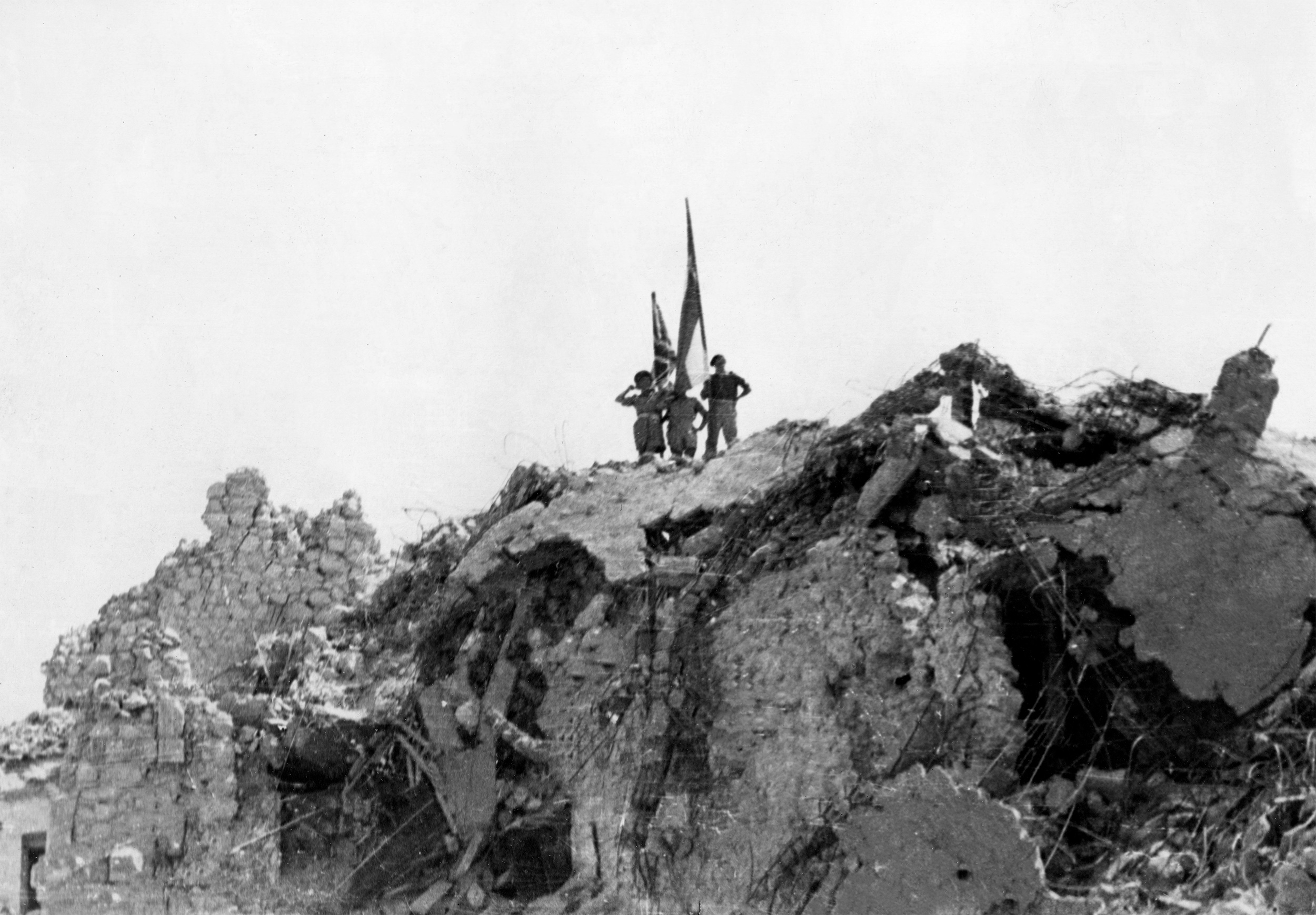
THE POLES AND THE LIBERATION OF MONTECASSINO
The war in Italy has been raging on for months. The Allies, stuck
along the Gustav Line, has experimented the efficiency of the
Wehrmacht and suffered numerous losses.
The few and insufficient results achieved don’t lead to unhinging the
front, and the Germans preserve their possessions and control over the
positions overlooking the Via Casilina.
The first three battles of Cassino are definitely unsuccessful for the
Anglo-American armies. The bombing of the Abbey in Montecassino
and the distraction of the town a month later allow the Germans to
take strategic advantages that make the allied advance to Rome even
more difficult.
The Fuhrer’s instructions are categorical and peremptory: hold out to the last
man. After the reorganization of the front, new and highly motivated troops
arrive in the Cassinate from April 1944. Among them, there’s the II Corps
commanded by General Wladyslaw Anders, an army that finds a chance at
redemptions against its historical enemy, Nazi Germany, on Cassino’s
battlefield.
Two divisions of the infantry, the 3rd Carpathian Rifle Division and the 5th
Kresowa Division, are put in charge of Montecassino’s sector. An armored
regiment and the 4th Skorpio Regiment support the operations.
The battle for the conquest of the Gustav Line and Cassino starts on 11 May
1944.
The Poles quickly conquer the ruins of the Abbey abandoned by the Germans
after the breakthrough of the front on the Aurunci Mounts.
This occurrence establishes the end of a nine-month odyssey and allows the
triumphal entry of the Allies in Rome on 4 June 1944.
To understand the strong symbolic value of Poland’s military contribution to
the Italian Campaign, especially in Montecassino, it is important to know the
troubled history of its people, who become an orphan in its own homeland,
which first is a loot for Nazis and Communists, and than a hostage of the
Soviet regime after the war.
Polish soldiers and their commander Anders will live in exile for decades, until
the fall of the Iron Curtain in 1992: Many of them will never see their
homeland again.